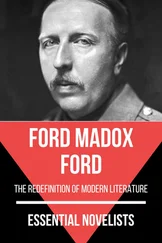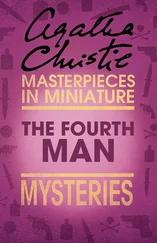'I say, whoever you are! I suppose they have done it; did they announce it in your parts by maroons or sirens?' She repeated it three times, she did not care for Lady Blastus or Lady Blast Anybody else. She was going to leave that old school and eat pomegranates in the shadow of the rock where Penelope, the wife of Ulysses, did her washing. With lashings of blue in the water! Was all your under-linen bluish in those parts owing to the colour of the sea? She could! She could! She could ! Go with her mother and brother and all to where you could eat...Oh new potatoes! In December, the sea being blue... What songs the Sirens sang and whether ...
She was not going to show respect for any Lady anything ever again. She had had to hitherto, independent young woman of means though she were, so as not to damage the School and Miss Wanostrocht with the Governoresses. Now...She was never going to show respect for anyone ever again. She had been through the mill: the whole world had been through the mill! No more respect!
As she might have expected she got it in the neck immediately afterwards--for over-cockiness!
The hissing, bitter voice from the telephone enunciated the one address she did not want to hear:
'Lincolnss.s.s...sInn!'
Sin!...Like the Devil!
It hurt.
The cruel voice said:
'I'm s.s.peaking from there!'
Valentine said courageously:
'Well; it's a great day. I suppose you're bothered by the cheering like me. I can't hear what you want. I don't care. Let 'em cheer!'
She felt like that. She should not have.
The voice said:
'You remember your Carlyle...'
It was exactly what she did not want to hear. With the receiver hard at her ear she looked round at the great schoolroom--the Hall, made to let a thousand girls sit silent while the Head made the speeches that were the note of the School. Repressive!...The place was like a nonconformist chapel. High, bare walls with Gothic windows running up to a pitch-pine varnished roof. Repression, the note of the place; the place, the very place not to be in to-day...You ought to be in the streets, hitting policemen's helmets with bladders. This was Cockney London: that was how Cockney London expressed itself. Hit policemen innocuously because policemen were stiff, embarrassed at these tributes of affection, swayed in rejoicing mobs over whose heads they looked remotely, like poplar trees jostled by vulgarer vegetables!
But she was there, being reminded of the dyspepsia of Thomas Carlyle!
' Oh! ' she exclaimed into the instrument, 'You're Edith Ethel!' Edith Ethel Duchemin, now of course Lady Mac-master! But you weren't used to thinking of her as Lady Somebody.
The last person in the world: the very last! Because long ago she had made up her mind that it was all over between herself and Edith Ethel. She certainly could not make any advance to the ennobled personage who vindictively disapproved of all things made--with a black thought in a black shade, as you might say. Of all things that were not being immediately useful to Edith Ethel!
And, aesthetically draped and meagre, she had sets of quotations for appropriate occasions. Rossetti for Love; Browning for optimism--not frequent that: Walter Savage Landor to show acquaintance with more esoteric prose. And the unfailing quotation from Carlyle for damping off saturnalia: for New Year's Day, Te Deums, Victories, anniversaries, celebrations...It was coming over the wire now, that quotation:
'...And then I remembered that it was the birthday of their Redeemer!'
How well Valentine knew it: how often with spiteful conceit had not Edith Ethel intoned that. A passage from the diary of the Sage of Chelsea who lived near the Barracks.
'To-day,' the quotation ran, 'I saw that the soldiers by the public house at the corner were more than usually drunk. And then I remembered that it was the birthday of their Redeemer!'
How superior of the Sage of Chelsea not to remember till then that that had been Christmas Day! Edith Ethel, too, was trying to show how superior she was. She wanted to prove that until she, Valentine Wannop, had reminded her, Lady Macmaster, that that day had about it something of the popular festival she, Lady Mac, had been unaware of the fact. Really quite unaware, you know. She lived in her rapt seclusion along with Sir Vincent--the critic, you know: their eyes fixed on the higher things, they disregarded maroons and had really a quite remarkable collection, by now, of first editions, official-titled friends and At Homes to their credit.
Yet Valentine remembered that once she had sat at the feet of the darkly mysterious Edith Ethel Ducheminwhere had that all gone?--and had sympathized with her marital martyrdoms, her impressive taste in furniture, her large rooms and her spiritual adulteries. So she said good-humouredly to the instrument:
'Aren't you just the same, Edith Ethel? And what can I do for you?'
The good-natured patronage in her tone astonished her, and she was astonished, too, at the ease with which she spoke. Then she realized that the noises had been going away: silence was falling: the cries receded. They were going towards a cumulation at a distance. The girls' voices in the playground no longer existed: the Head must have let them go. Naturally, too, the local population wasn't going to go on letting off crackers in side streets...She was alone: cloistered with the utterly improbable!
Lady Macmaster had sought her out and here was she, Valentine Wannop, patronizing Lady Macmaster! Why? What could Lady Macmaster want her to do? She couldn't --but of course she jolly well could!--be thinking of being unfaithful to Macmaster and be wanting her, Valentine Wannop, to play the innocent, the virginal gooseberry or Disciple. Or alibi. Whatever it was. Goose was the most appropriate word...Obviously Macmaster was the sort of person to whom any Lady Macmaster would want--would have--to be unfaithful. A little, dark-bearded, drooping deprecatory fellow. A typical Critic! All Critics' wives were probably unfaithful to them. They lacked the creative gift. What did you call it? A word unfit for a young lady to use!
Her mind ran about in this unbridled, Cockney schoolgirl's vein. There was no stopping it. It was in honour of the DAY! She was temporarily inhibited from bashing policemen on the head, so she was mentally disrespectful to constituted authority--to Sir Vincent Macmaster, Principal Secretary to H.M. Department of Statistics, author of Walter Savage Landor, a Critical Monograph , and of twenty-two other Critical Monographs in the Eminent Bores' Series... Such books! And she was being disrespectful and patronizing to Lady Macmaster, Egeria to innumerable Scottish Men of Letters! No more respect! Was that to be a lasting effect of the cataclysm that had involved the world? The late cataclysm! Thank God, since ten minutes ago they could call it the late cataclysm!
She was positively tittering in front of the telephone from which Lady Macmaster's voice was now coming in earnest, cajoling tones--as if she knew that Valentine was not paying very much attention, saying:
'Valentine! Val entine! Valentine! '
Valentine said negligently:
'I'm listening!'
She wasn't really. She was really reflecting on whether there had not been more sense in the Mistresses' Conference that that morning, solemnly, had taken place in the Head's private room. Undoubtedly what the Mistresses with the Head at their head had feared was that if they, Headmistresses, Mistresses, Masters, Pastors--by whom I was made etcetera!--should cease to be respected because saturnalia broke out on the sounding of a maroon the whole world would go to pieces! An awful thought! The Girls no longer sitting silent in the nonconformist hall while the Head addressed repressive speeches to them...
Читать дальше












